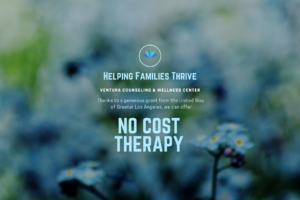After living through a traumatic experience, many people want to keep their minds off it as much as possible. By maintaining a busy mind, you might feel better able to keep unwelcome memories at bay. But never tapping into the present moment makes it harder to heal from your trauma. Beyond that, it can mean missing out on the beautiful moments that life presents when you slow down and pay attention.
That said, mindfulness isn’t without its risks for trauma survivors. So today, we wanted to offer a look at where this tool can be useful and how to apply it safely.
Applying mindfulness to heal trauma
Research has shown that mindfulness can address trauma symptoms and help with trauma recovery. In fact, in an ideal state of mindfulness, you’re present in the moment without being overly reactive. Mindfulness means observing our experience without judgment.
Studies have also demonstrated that being mindful can help with mental health conditions that can arise as a result of a traumatic event, including post-traumatic stress disorder (PTSD) and depression.
Meditation is a major tool to foster mindfulness, along with a wide range of mental health perks. Meditation calls on the person to still the body and the mind and to be in the present moment. But if you’re still dealing with the aftermath of your traumatic experience, launching straight into traditional meditation might not feel safe. For many, traumatic experiences make “being in the body” often feel unsafe due to the overwhelming sensory activation or intrusive unwanted thoughts doing so can cause.
To limit adverse reactions, it’s helpful to apply a trauma-informed mindfulness approach.
Protecting your sense of safety as you explore mindfulness
When you still your body and try to quiet your mind as you work on mindfulness, unwelcome memories might creep in. Some trauma survivors even report feeling physical sensations as they try to sit and meditate.
It’s important that you prioritize your safety over any meditation goals. If you aimed to sit for 10 minutes but you feel sweaty and stressed after two, leave the meditation. You can always come back.
Grounding and guiding your trauma recovery meditation
If you’re having a difficult time remaining in meditation, try placing something such as a stone or rock inside your hand so you can feel the physical sensation of something that represents stillness. When we use mindfulness, it’s an attempt to ground ourselves and help regulate our nervous system. Trauma often causes injury to the regulation of our nervous system. This is what makes techniques like this useful for the trauma recovery process. Connecting to things that ground us, such as parts of the land or the sensation of water, can help in this process if it’s feeling a bit tricky for you.
This is an area where having guidance can make a big difference. In fact, guided meditations — which you can find on YouTube, Spotify, and elsewhere — might help because you know the voice of your guide will be there throughout the meditation. Your therapist can also explore live guided meditation with you, which allows your guide to tailor the meditation to the response you’re having in the moment.
Trying alternative forms of meditation
It might also help to add stimulus to your meditation. Practicing present-moment awareness while you go on a walk, for example, might feel safer than sitting still. Many trauma survivors build their mindfulness muscle by practicing being focused on the present moment while doing things they love, like listening to music, cooking, swimming, etc.
As you explore what feels safe, work with your therapist to build grounding and self-regulation into your mindfulness practice. These tools support your ability to drop into the present moment in a healthy way. This, in turn, builds both acceptance and resilience. It can even help you feel more hope for the future as you learn to see the good in the present.
To explore how trauma-informed mindfulness practices could help you, have a conversation with your therapist. If you’re not already connected to a mental health professional who has experience helping trauma survivors, we’re here. To get started with us and explore resources to support you during your trauma recovery journey, contact our team at the Ventura Counseling & Wellness Center in Ventura or the West Valley Counseling Center in Tarzana.





